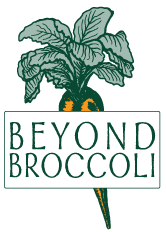This morning I read a blog post by Carolyn Hall entitled “6 Things I Don’t Understand About the Fat Acceptance Movement.” I realize that as with so many contentious current issues, people on all sides are so entrenched in their own views they struggle to step back and look at the whole picture. We all do this – we judge what we see and hear based upon our own life experiences. The bigger problem occurs when we are not open to changing our preconceived notions. As I tell my university students – if we want to be part of the solution to our current problems we must learn to communicate with people who don’t think like we do. This post is an attempt to do just that.
Though I felt frustrated reading this article I recognize Hall’s questions are shared by many who are unfamiliar with the nuances of the HAES (Health at Every Size) approach and provide an opportunity to respond with my take on these questions. I assume this author genuinely wants to hear a different view point and respond to her 6 points accordingly. Each response is based on my 14 years of work as a Registered Dietitian with a major focus on a non-diet approach to health, and a specialty working with problem eating all along the continuum, including eating disorders.
1. America is extremely accepting of fat.
Only someone who has not lived in America in a fat body could make this statement. To be clear, despite feeling fat most of my life starting in preadolescence, and going through periods of being 20-25 pounds or so above what is considered “healthy” for my height, my work with clients in larger bodies has shown me that I do not really know what it is like to be fat in our culture. I am haunted by their life stories however, and I can assure you this statement is not accurate.
I do agree with Hall that our culture accepts and even encourages many of the factors that contribute to unhealthy lifestyles, including excess weight and inadequate physical movement. As a whole (with some very vocal exceptions) we accept a food system that produces and promotes a plethora of unhealthy foods and makes them cheap, convenient, and accessible 24/7 for most of us. We accept that our “busy lives” don’t include time to prepare and eat health-promoting food at regular intervals and without distractions. We don’t encourage people to connect with their internal cues of hunger and fullness or with how their physical and mental health is linked to their eating habits. We accept a fear-based approach to education about virtually everything, including nutrition, and then blame people who don’t make sustainable changes based on fear (a topic for another post).
2. “Body positivity” should include health.
I cannot speak for every member of the Fat Acceptance or Health At Every Size Movements but I can tell you as a longtime advocate of a non-diet approach to health, and an eating disorder professional, my motivation to do this work is a focus on health. As with all social “movements” I suspect there are advocates with extreme and more rigid views than mine but having read many books by HAES proponents, any suggestion that health is not a key part of this movement is a misinterpretation.
The problem I see is that weight and health are so intertwined we overlook the fact that many lifestyle changes related to food, exercise, stress resilience, and more, can improve health with little or no change in body weight. Even if weight loss can increase health benefits, which is likely to be true in the extreme cases of morbid obesity the author refers to throughout her article, as long as positive lifestyle changes are tethered to weight loss, we encourage yo-yo dieting and unsustainable changes linked to metabolic mayhem that are not likely to yield long-term health benefits.
Body positivity does not mean you love being fat or want everyone to be fat. Accepting that you are a human being with worth that extends beyond your appearance is body positivity. In my experience working with people who struggle with food, weight and body image, the preoccupation with body weight, shape and size occurs in underweight, overweight and healthy weight individuals, male, female and transgendered. Shifting the focus toward what Connie Sobczak calls “intuitive living” in her excellent book Embody, is about self-care in every aspect of our lives. As long as we are only focused on a number on the scale we are not truly engaged in sustainable self-care.
3. “Health at every size” seems physically impossible.
Again, Hall is hung up here on the extremes – as many critics of the HAES approach are. As stated above, the main idea is that we need to shift the focus from weight to health, for everyone. Weight gain, or loss, may be part of the bigger health picture for people at the extremes of anorexia and morbid obesity. However, I see clients on a regular basis who are within a “healthy” weight range and routinely engage in unhealthy behaviors in an attempt to change (or maintain) the way they look.
I cannot count the number of times clients report compliments about how “good” they look or how much weight they’ve lost after days of erratic eating, purging, starving themselves, or exercising in dangerous ways. They not only hear this positive feedback from friends and co-workers but health professionals – doctors, personal trainers, and yes, sadly, nutritionists. All of us can be blind to the physical and emotional health consequences of a weight-focused vs. health-focused culture.
4. People are allowed to not be attracted to certain body types.
I have no issue with this statement. Attraction is thankfully diverse and individualized. My issue is that the fat shaming prevalent in our culture is an accepted form of discrimination and prejudice. Though I don’t believe we are anywhere near “post-racial” or beyond any other form of discrimination widely accepted earlier in my lifetime, I see examples on a regular basis of serious discrimination based on weight that is totally accepted in mainstream culture. Even people who still believe race, ethnic background, sex, gender, or religious preferences are undesirable, don’t express such views widely (except of course on the internet). Yet somehow there is a general acceptance of negative comments made about someone’s weight. As a society we allow fat to be a code word for lazy, stupid, weak, and other harmful judgments.
Promoting the idea that people come in different shapes and sizes does not mean we all suddenly have to be attracted to fat people. This is more of a social justice issue than a personal attraction or general health issue.
5. Food addiction is a real medical problem.
A complete response to this point is easily an entire blog post unto itself. In brief however, the concept of “food addiction” is controversial, particularly if we attempt to address this “diagnosis” as we do addictions to other substances. There are many issues that contribute to both what and how much we eat on a regular basis. While biochemistry and neuroscience can explain pieces of this complex puzzle, any attempt to reduce problem eating to “simple addiction” is not helpful.
Foods that are highly processed and bypass our internal cues of hunger and fullness are a problem. As stated previously these foods are cheap, convenient, and accessible. They are also heavily promoted using results from billions of dollars of food psychology research. I fully agree we need to address these issues.
To understand eating problems more completely however, we need to include the biochemical aspects of our response to food, along with our long-established neural pathways or habits, various influences in our food environments, and other aspects of human behavior. Evolutionary psychology can also help us better understand our currently maladaptive tendencies with the curiosity and compassion we need to make significant and sustainable changes to our behavior.
Like it or not, eating habits are complicated and reductionist “solutions” must be recognized as such. The HAES movement may not focus on all of the points I mention here but it does recognize the “answers” to the “obesity crisis” are not simple.
6. Childhood obesity is something we can’t be accepting of.
I could not agree more on this point. I know many health professionals who endorse non-diet and HAES approaches and none of them are “pro-obesity” of any sort, especially among children. Raising children to eat based on fear – don’t eat this or that because you will get sick, or worse, get fat, is not helpful. Continuing to advocate a weight-focused vs. overall health-focused paradigm will not help our children. They need to know that eating nutritious foods and moving their bodies daily is good for their brains, bodies, mood, energy levels, and overall health. But they also deserve to know that thin does not equal healthy; that as they transition from childhood to adolescence and then into adulthood, their bodies will grow and change, and these changes don’t mean they are unacceptable when they don’t fit narrowly defined ideals of beauty.
Our children need to know there is no “perfect body” or “perfect diet.” In fact it would be great if they abandoned the notion of perfection altogether. Striving to do the best they can is awesome. Chasing the illusion of perfection can be dangerous.
It is our responsibility as adults to provide an environment for our children that supports good health and a sense of well-being. In our current culture this is no easy feat. It is clear however, that what we have been doing for the past few decades is not working. Focusing on short-term fad diets, succumbing to the trappings of modern society that support unhealthy lifestyles and then blaming people who gain weight or don’t exercise enough, using fear-based tactics in an attempt to change people’s habits, are not helpful strategies to produce the changes we want to see.
I don’t like the phrase “fat acceptance.” I prefer “human acceptance” which gets more to the core of our various health problems linked to weight. In fact we know that the statistics related to weight and health also apply to socioeconomic status and health. This doesn’t mean we don’t pay attention to these relationships but hopefully it means we try harder to understand the complexity of the issues beyond what we see on the scale.
There is no single way out of the mess we are in related to poor health as a society. Blame, shame, fear, anger, and a lack of compassion for ourselves and others are not working to make us healthier physically or mentally. What I am drawn to in alternate paradigms such as Health at Every Size (HAES) is the refusal to reduce our current health problems to weight alone, nor to continue clinging to approaches that don’t work. It is time for a fresh perspective and frankly I don’t care what we call it as long as it takes us in a more positive direction.



